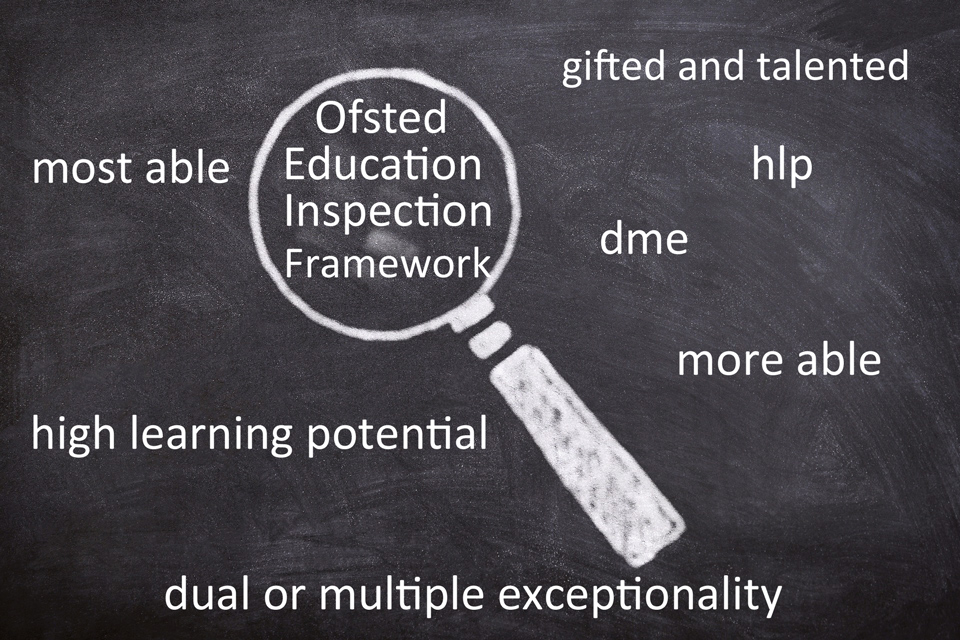Ofsted is the inspection body for schools in England
Back in March this year I wrote about Ofsted’s consultation on its proposed Education Inspection Framework and shared Potential Plus UK’s response to it.
Both in our response and earlier meeting with Ofsted we highlighted research by Potential Plus UK on provision for most able(1) learners in 728 Ofsted inspections in June 2018. That analysis ascertained that over 43% of schools required change to their current provision. A further breakdown showed that it was mainly more challenge (67.92%) or more progress (26.73%) that was needed. This revealed that there was already a gap in provision for most able learners and any reduction in emphasis in the new Framework could impact even more negatively on their learning experiences.
Given that ‘most able’ has been removed from the Framework from September 2019, this continues to be of concern. We are therefore carrying out a second analysis on reports published in June 2019 as a comparison; was June 2018 an anomaly? Or not?
That’s not to say that there isn’t a lot to welcome in the new Framework. The emphasis on the ‘quality of education’ a child receives and a broadening and deepening of the curriculum, should lead to an environment that delivers for the individual child regardless of their starting point. This was reiterated when I went back to Ofsted in the summer. And as a governor at a local primary school, the message is that Ofsted inspectors will be considering what it is like to be a pupil in that school, including whether most able, from a disadvantaged background or with special educational needs or disabilities.
In a recent article(2) for nace, an organisation that works with schools, Sean Harford, Ofsted National Director, writes:
“We are also going to be checking that schools have an inclusive culture. This includes teaching those pupils who are the most able, and who may need to be challenged that bit more.
In short, our inspectors are taking a rounded view of the quality of education that a school provides to all its pupils, which means the most able pupils as much as poorer pupils and their peers with special educational needs and/or disability.”
The content and methodology for inspections and reports is changing. Schools will be aware that the ‘deep dive’ is the approach that inspectors will take; considering the curriculum offering in depth and the progression students make so that they ‘do more, know more, remember more’. The new reporting format could take a little while to embed, but we will be looking for evidence that Ofsted inspectors are considering what it is like to be a high potential learner in the school and how that is shared in the reports.
We’ll come back to you with our findings; including the terms, phrases and examples that are being used to evidence challenge and depth of learning for our children, as well as equality of opportunities for them to learn to struggle and build resilience. We’ll aim to give parents the information needed to advocate for their child in their school. Watch this space!
Julie Taplin
Chief Executive
Potential Plus UK
(1) The term used by Ofsted
(2) Read the full article here: https://www.nace.co.uk/blogpost/1764156/332126/Ofsted-update-focus-on-personal-development-in-new-inspection-framework






